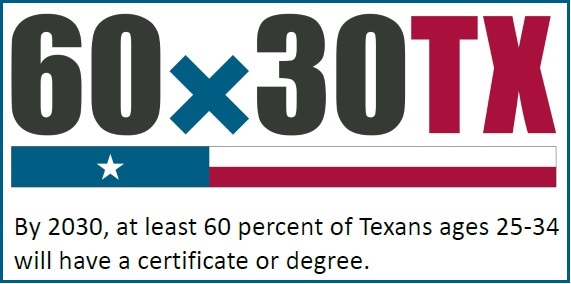Program Purpose
Encourage foster youth currently or formerly under the conservatorship of the Texas Department of Family and Protective Services (DFPS) and those adopted from DFPS to pursue a higher education in Texas by providing eligible students free tuition at state-supported colleges or universities.
NOTE:This webpage is intended to provide basic information for the public by highlighting requirements that appear in the Texas Education Code (TEC) and Texas Administrative Code (TAC). When reviewing eligibility requirements this exemption program, you should always refer to the relevant statutes and rules. The information on this webpage is to be used solely as a resource and does not override the statute or rules for this exemption program. It is not intended as, and does not constitute, legal advice.
Eligibility Requirements
To find out whether you are eligible for this tuition exemption, contact the Texas Department of Family and Protective Services and request Form 1810: DFPS Verification of the State College Tuition and Fee Waiver. The form is processed by either DFPS Adoption Eligibility staff or Preparation for Adult Living (PAL) staff.
Eligible students:
- Are not required to be Texas residents when awarded, as long as they meet the DFPS program requirements.
- Are not required to demonstrate financial need.
- Must be registered with Selective Service, or be exempt.
- Must meet the enrollment eligibility requirements before the age of 25*. However, students are not required to receive the exemption before the age of 25.
- *Adopted students who were the subject of an adoption assistance agreement may enroll in an institution at any age.
- Can continue receiving the exemption even if they are not meeting the institution’s grade point average (GPA) requirement, as long as they are meeting institutional registration requirements.
- Can continue receiving the exemption even if they are enrolled in excessive hours (TEC, Section 54.014).
- Who meet the enrollment eligibility requirements can receive the exemption while attempting any program of study offered at an eligible institution (i.e., undergraduate, graduate, or doctoral degree).
- Exemption from tuition is only for courses in which the institution receives formula funding (i.e., a course that does not depend solely on student tuition and fees to cover its costs).
- The student may be awarded tuition and all fees authorized by TEC, Chapter 54 (such as lab fees) for any eligible course attempted.
- Enroll and be admitted at an eligible institution in Texas.
- Request a tuition exemption approval letter (Form 1810) from DFPS staff.
- DFPS staff issues Form 1810 to the student by mail or email, confirming the student’s program eligibility at the relevant institution.
- Eligible student submits Form 1810 to the institution.
- Institution verifies enrollment eligibility in the tuition exemption program.
- Institution verifies each year that the student remains eligible. (Student does not have to reapply each year.)
- Contact your Texas public college or university if you have questions.
- Students Under Conservatorship of DFPS—TEC, Section 54.366
- Adopted Students Formerly in Foster Care—TEC, Section 54.367
- Tuition and Fee Waiver for Youth Returning to a Parent—40 TAC, Section 700.1630
- www.texasyouthconnection.org
- DFPS: State College Tuition Waiver - Texas
- General questions? Call 888-311-8881
- Contact Us!
Eligible Institutions
All Texas public colleges and universities are required to participate in this program. Your institution may have a tuition waiver liaison to help you navigate the enrollment process.
Award Amount
Once DFPS confirms eligibility for the exemption, students are able to receive the exemption indefinitely.
Application Process
Additional Information


